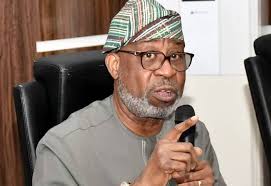In the realm of governance, the role of lawmakers extends far beyond the corridors of power; it is a solemn duty entrusted by the people, a mandate to represent and advocate for the collective welfare of their constituents. However, recent observations in Jos North state constituency, Bassa/Jos North federal constituency, and Plateau North senatorial zone in Plateau state raise questions about the discharge of this duty by elected representatives.
The tenure of Rt. Hon. Ibrahim Baba Hassan, who served four consecutive terms of 16 years, stands as a stark example of unfulfilled promises and neglected responsibilities. Despite his lengthy stay in office, his legacy remains elusive, with no tangible achievements to show for his prolonged incumbency. The people of Jos North North were left yearning for development and progress, as their representative failed to deliver on his mandate.
In the wake of the 2023 general elections, hope flickered anew with the election of Hon. Adamu Aliyu to represent Jos North state constituency. However, this hope has dimmed in the face of silence. Since assuming office, Hon. Aliyu has remained conspicuously silent, devoid of any public statements or communication with his constituents. The absence of a clear agenda or initiatives leaves the people disillusioned and questioning the effectiveness of their representation.
Similarly, at the federal level, the constituents of Bassa/Jos North find themselves in a similar predicament with their House of Representatives member, Honourable Daniel Asama. Despite the policies implemented by the federal government and the pressing issues facing the constituency, Honourable Asama has failed to communicate his plans or engage with the people he was elected to serve. Like his state counterpart, he too remains mute on potential initiatives, leaving his constituents in the dark about their future.
Moreover, the position of the Bassa/Jos North House of Representatives has been plagued by instability in recent years. The tragic loss of the former member, Alhaji Haruna Maitala, barely two years into his term due to a ghastly motor accident, left a void in representation that has yet to be filled. Following his untimely demise, the constituency witnessed election tribunals and litigations, resulting in a series of uncertainties.
Hon. Muhammad Alkali Gwani emerged victorious through legal battles, only to spend a mere six or seven months in office before returning to the courts to contest the outcome of the recently conducted rerun elections, which saw Hon. Daniel Asama emerge as the winner. This tumultuous journey has left the constituents grappling with political instability and a sense of disarray, further exacerbating their disillusionment with the representation they receive.
On top of that, the silence extends to the upper echelons of representation, exemplified by Senator Dachung Gyang Pam Mwadkon of Plateau North senatorial zone. Despite holding a pivotal position in the legislative landscape, Senator Mwadkon has been notably absent in terms of communication and agenda setting. His constituents often find themselves forgetting the very existence of their senator, as he remains silent on crucial matters affecting the zone.
These observations highlight the critical role of lawmakers in driving development and progress within their constituencies. Beyond legislative duties, representatives are entrusted with the task of advocating for the needs and aspirations of their constituents, initiating projects, and fostering meaningful engagement with the community.
Their silence speaks volumes, reflecting a failure to uphold these responsibilities and deliver on the promises made during election campaigns.
Furthermore, these instances underscore the consequences of voting based on tribal and religious affiliations rather than competencies. The focus on identity politics often overlooks the qualifications and capabilities of candidates, leading to the election of individuals ill equipped to address the challenges facing their constituencies.
The result is a cycle of ineffective representation and unfulfilled promises, perpetuating stagnation rather than progress. Equally detrimental is the undue influence of selfish religious scholars who wield their influence to dictate electoral choices. Their intervention in political affairs, devoid of expertise or understanding of governance, only serves to further entrench divisions and hinder meaningful dialogue. Instead of promoting unity and peace, they sow seeds of discord and perpetuate a culture of blind allegiance, to the detriment of democratic principles.
In conclusion, the silence of representatives like Hon. Adamu Aliyu, Hon. Daniel Asama, and Senator Dachunggyang Pam Mwadkon echoes louder than words, underscoring the need for accountable and responsive governance. The people deserve representatives who prioritise their interests above all else, who are committed to transparency, engagement, and action. it is only through diligent and principled leadership that the aspirations of the electorate can be realised, transcending the barriers of identity politics and paving the way for a brighter future.
Ahmed Tijjani Nakande,
Jos, Plateau state.
[email protected]




